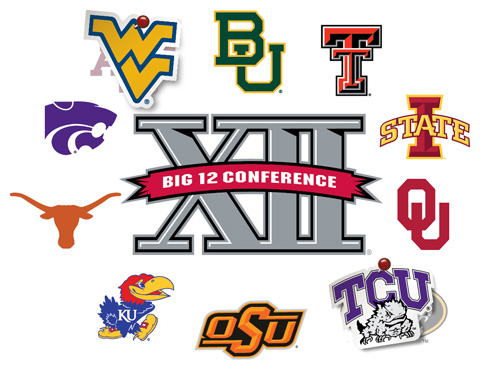Big 12 moves ahead
Conference stabilizes with addition of TCU, WVU
After an eventful four months of rumors and reports, the Big 12 Conference secured a stable future in November with the addition of TCU and then West Virginia to the league's lineup. Beginning in fall 2012, the Horned Frogs and Mountaineers will replace Texas A&M and Missouri, which are headed to the Southeastern Conference.
To stabilize the conference moving forward, every institution agreed to equal revenue sharing, a first in the league's history. New rules were also put in place that severely limit high school content that can be aired on third-tier networks, which solved an issue some schools had with telecast packages like Texas' Longhorn Network.
Perhaps most importantly, each university also granted its first- and second-tier TV rights to the conference for a minimum of six years, a move employed by leagues such as the Big Ten and Pac-12. (That agreement makes any school that might consider leaving the conference less attractive to other leagues, because the school would have to leave its football TV rights behind.)
The addition of TCU to the Big 12 provides for the rekindling of one of Baylor's oldest rivalries, dating all the way back to 1899, when TCU was located in Waco (near the intersection of 18th Street and Lyle Avenue). In 1909, Baylor's first Homecoming weekend centered around the game against TCU, and the Frogs were the Bears' Homecoming opponent in every odd-numbered year but one between 1931 and 1995.
West Virginia, on the other hand, is a completely new foe for Baylor in almost every sport. Across all sports, the Bears and Mountaineers have squared off head to head just five times, with Baylor winning four of those. The teams have played twice in women's basketball (1984 and 2011) and three times in volleyball (1986, 1997 and 2011); men's basketball was also slated to play WVU in December at a tournament in Las Vegas.
With TCU and West Virginia joining the league, the Big 12 will continue to include a quartet of Texas schools (Baylor, TCU, Texas and Texas Tech), providing plenty of chances for the Bears to face in-state rivals, while also expanding its reach to introduce more fans to Baylor and its heartland opponents.
